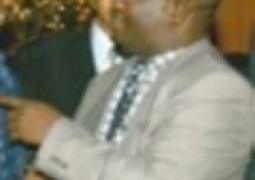At some point in time in our lives, we may be interviewed. At times we might not be ready to do so, but it is important that we give interviews to help others or even to help ourselves. In some cases it could be a job interview.
Interviews may come in different ways; telephone interview, face to face interview are some forms of interviews, but when one's interview is to be aired, telecast or broadcast one would be informed. It is your right to deny an interview!
Points to remember
1. Be prepared. Always be prepared; never conduct an interview without being on your guard. If you aren't prepared then the only advice is don't do it.
2. Respect your interviewer - be a reliable and credible resource. Don't conduct an interview on stories that aren't factual. Have a detailed knowledge of what you are going to talk about, this could help you more. Remember you could be held responsible for whatever may come out of your mouth.
3. Talk in personal terms when you can. Research has shown that one can talk confidently with whom one is acquainted with. So if one is not acquainted with an interviewer try to relax and talk like you have known him/her for ages. That definitely would calm you down.
4. Bring materials along to support what you are saying. Evidence has always been a useful material where it is needed. This would make the interviewer to have more confidence in what you are saying.
5. Don't rush! Take your time to give a response. Once you shoot recklessly, you would come to realize that what you said is not the right answer. Take a deep breathe, think, crosscheck what you are going to say, double check and see if it is the right answer before you go on.
6. Nothing is EVER off the record. If you don't want to see something quoted, then don't say it.
7. Tell the truth. Don't go about beating the bush, exaggerate or make things up. It might get you into trouble, you never can say!
8. If you don't know something, tell the journalist or interviewer you will find out. Get the information and call them back.
9. Never say "no comment" it shows one's ignorance on a subject matter and one's reluctance to answer a particular question.
1O. Speak clearly, sit up straight, look at the reporter or interviewer and project your voice. Speaking in muffled or low tones clearly manifests one's lack of confidence and nervousness.
Most importantly...
11. Never feel forced or pressured to give an interview. If you do not want to be interviewed, it is your right to say NO. Make this clear right from the start that you are not comfortable speaking with the press. The journalists can then try to find someone else to speak to for the interview.
Some links in conducting an interview
1. Come again please
2. That's an important question
3. I knew you would ask me that
4. Like I said before...
5. Thank you very much..
6. Pardon me...
Checklist
Questions to ask yourself when rating your interview performance.
Yes or No?
1. Have I thought of all the questions I might be asked?
2. Am I taking every opportunity to say my "key points?"
3. Are my answers suitable to air or to be published?
4. Am I being clear?
5. Are my answers short?
6. Am I talking in a friendly way?
7. Am I providing good information?
8. Are my sentences complete?
9. Am I using words or terms people won't understand? Remember it is very important to be understood by all.
10. Am I sounding natural?
11. Do I sound nervous?
12. Am I reading my answers?
13. Am I speaking in a clear voice?
14. Am I saying negative things?
15 Do I look like I know what I am talking about?
Like I once said in one of the editions of "bring it on," it is important for one to have confidence in whatever one is doing so as to go about one's business, people have more troubles to attend to than noticing your lack of self-esteem? Heads up and conduct your interview. Good luck!!!


